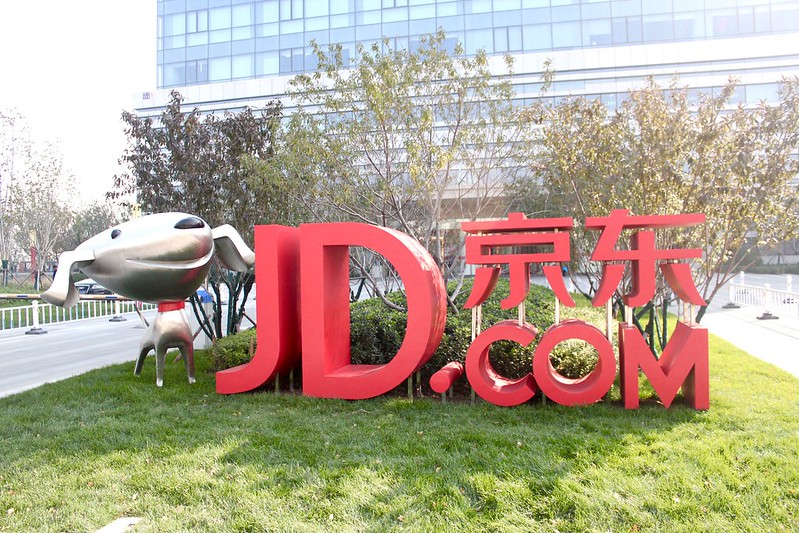The Chinese e-commerce leader JD.com has prevailed over its online retail rival Alibaba in a landmark antitrust lawsuit centered on exclusivity clauses forcing merchants to sell with one platform over another.
The long-awaited Beijing Higher Court verdict ordered Alibaba to pay $141 million in compensation over monopolistic practices dubbed ‘Choose One’ that limited sellers and brands and prevented fair online competition.
Handed down on Friday after years of winding through China’s legal system, the ruling crowns JD’s resistance against restrictive contract terms that critics say have long distorted the dynamics of the country’s ecommerce markets.
The result of the lawsuit cements the ongoing crackdown on antitrust practices carried out by authorities in China. This initiative started in 2021 when the country pressured tech firms including Alibaba to stop implementing certain practices that limited consumers’ choices.
Back then, Alibaba (BABA) was slapped with a $2.8 billion fine after regulators concluded that the company exhibited monopolistic behavior across its ecommerce platforms.
Alibaba is Once Again Forced to Give Up Exclusivity Clauses
JD filed its initial complaint back in 2017 challenging Alibaba’s tactics that pressure merchants into exclusivity arrangements preventing them from selling goods on rival platforms like JD.
Dubbed ‘Choose One from Two’, the alleged practices bar sellers from reaching customers across popular marketplaces – even if they have sufficient inventory and logistics capacity.
JD blasted such single-platform constraints as monopolistic maneuvers strangling choice while inflicting lost sales and efficiency costs across ecommerce ecosystems. It accused Alibaba of severely damaging its operations and growth by coercing retailers from listing on JD despite surging user demand.
Ruling Orders $141 Million Payout Over Damages
The Higher Court verdict concluded that Alibaba abused its dominance via restrictive contract clauses undermining market competition.
The landmark judgment orders Alibaba and two affiliated subsidiaries to pay JD nearly 1 billion yuan – over $140 million – in compensation for anticompetitive harms inflicting lasting damages to its business.
Legal experts describe the sum as sizable by Chinese standards. They indicate that the court acknowledged considerable injury from exclusivity schemes cutting into JD’s seller and product acquisition.
The JD.com Case is a Milestone Moment for Antitrust Enforcement in China
In its official statement, JD commented:
“This ruling is not only a fair decision for JD’s resistance against the ‘choose one out of two’ monopoly, but a landmark moment in upholding market fairness and competition order through the rule of law”.
Many observers concur that the verdict cements the country’s intensified antitrust discipline after years of lax enforcement against behemoths like Alibaba, which have been accused multiple times of using ‘hardball’ tactics to block rivals.
Regulators’ intervention in 2021 may have set things in motion and could have provided the court with the boldness to enforce today’s ruling. Combined with this civil case, authorities seem to be forcefully rebooting competition dynamics that are usually considered vital to the dynamism of a thriving digital economy.
The ruling should also deter other platforms from abusing their strength and dominance to limit merchant and consumers’ choices.
Broader Implications for Ecommerce Players
More broadly, JD’s victory buoys efforts across China’s online sales industry to dismantle rigid informal contracts and stimulate greater inter-platform synergies. Vendors can now freely list their products across various platforms to increase sales and reach.
The decision may facilitate farmers and smaller enterprises to access more marketplaces simultaneously and this could lead to healthy competition over the fees and commissions charged for using these platforms.
For major ecommerce channels, experts anticipate possible moves toward establishing formal alliances that generate benefits for sellers such as multi-platform listings and multi-platform management software.
The Case Has Bolstered Confidence in China’s Antimonopoly Fight
In its public statement, JD said that the ruling greatly encourages its commitment to integrity to further contribute to the development of the “real economy”.
The company expressed gratitude for judicial remedies after years of navigating an unfair landscape tilted against its expansion by self-serving incumbents.
Observers predict that JD will leverage the momentum from the verdict to pursue further efforts to align industry-wide practices with fairer conditions for stakeholders beyond dominant platforms.
Also read: Google Aims to Resolve Latest Antitrust Hurdle Following Android Automotive Investigation
Despite this week’s milestone, analysts caution China’s antimonopoly campaign remains a prolonged work in progress against deeply entrenched cultures. Vested interests may look for loopholes in existing prohibitions while still denying merchants and startups opportunities.
Continued legal, regulatory, and even public vigilance appears vital to enforce competition reforms by penalizing violations by using JD’s case as a robust legal precedent. With ecommerce becoming increasingly central to China’s strategic interests, few expect that authorities will back down in their attempts to break up closed ecosystems and unleash digital advancement.
